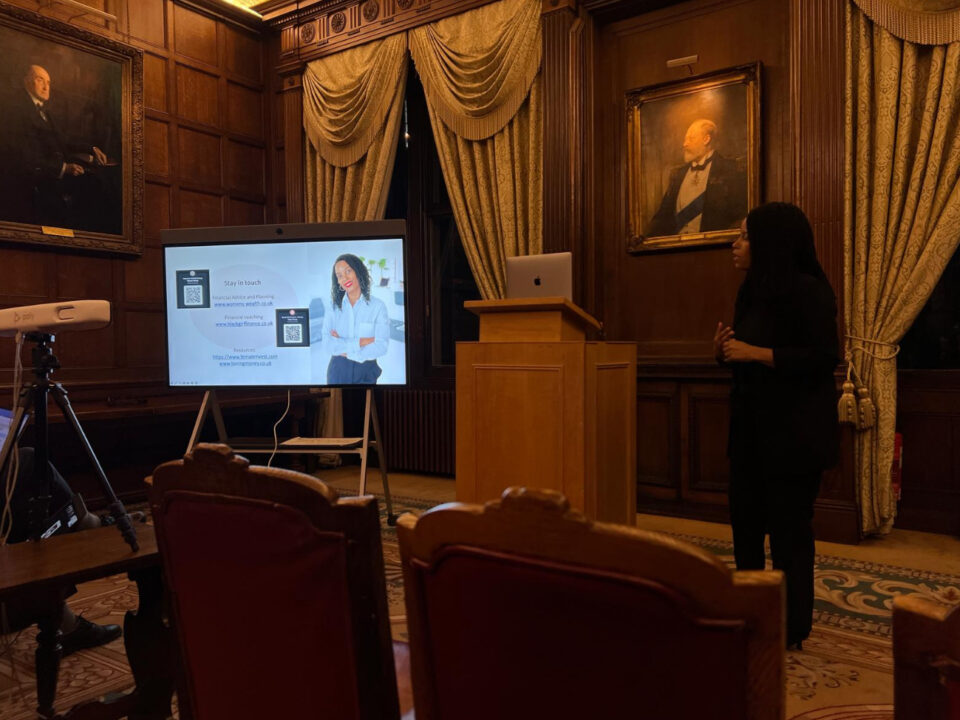
Commercial Awareness Update – W/C 5th February 2024
February 5, 2024
Proven Tips for Crafting a Successful Legal Career
February 8, 2024By Jasmeen Kaur.
Reading time: three minutes
When one thinks about people with disabilities, one may initially associate them with those who have difficulty with mobility. Yet, a person with a disability is generally understood to be someone who, over time, has a significant impairment—physical or mental—that impairs their ability to do daily responsibilities.
People with disabilities unquestionably encounter discrimination within law firms and barristers’ chambers, given that disabled people who experience such discrimination are prone to become discouraged since reports have shown that ‘2.8% of the total self-identified as having a disability’, where one of the main issues may be physical access to Chambers and courts. Hence, statistics show that they are likely to feel excluded and unfairly treated. Prompt action must be taken to promote inclusivity and eliminate these discrepancies. The SRA has been seeking to ensure that within the law sector, people with disability do not face discrimination. For example, they have recommended that firms be proactive in offering reasonable adjustments, such as exploring suitable adjustments openly during the hiring process. SRA mentioned that this has been successful as the individuals had felt less anxious about admitting they had disabilities and what adjustments they needed. Hence, following some of the steps highlighted in the SRA report undoubtedly ensures that disabled people will not be neglected.
Barriers to entry
The Law Society of England and Wales established a report that ‘whilst disclosure might be high, c. 25% at university level, it sharply diminishes to c.1-2% when seeking employment’. It is pretty discouraging to observe a substantial decline in employment prospects for people with disabilities, which is indicative of a worrisome belief that they are not unlike other individuals. Many people presumably experience discrimination because of their disability; one particular case that clarifies this topic is Mrs K Farrow v Mrs N Foster and Foster Clay Law Ltd. In this case, Mrs K Farrow had faced discrimination towards her disability when she was open about her disability from IBS, and how she required flexibility. The HR department had considered her IBS to be solely “tummy issues” which suggested that there was no attention to detail about her issue and it was being overlooked. Ultimately, Inspire Legal Group spoke with Farrow’s prior employer and “abruptly” terminated the hiring process. As you can see, this was quite severe, and FCL needed to have approached the situation differently because it was blatantly discriminatory. The department ought to have taken the condition into account.
Statistics reveal that ’40 percent of workers either never disclosed their disability to their employer or did so only occasionally. Additionally, only 8.5% of respondents who had impairments at the beginning of their program disclosed it in their application’. These findings highlight the substantial impact a disability can have on a person’s employment opportunities. This emphasises how the legal system needs to develop to provide people with the confidence to declare their disability, but this can be difficult, as seen by Mrs K. Farrow’s experience, which she described as “damaging to her self-confidence.” Others who might be reluctant to apply for jobs out of concern for embarrassment and possible harm to their self-esteem are probably able to relate to this circumstance. People with disabilities shouldn’t feel different or less than others, and promoting equality is essential to lowering obstacles to employment in the legal field for those with disabilities.
Legal tech
Technology’s rapid advancement has been reshaping several industries, and its use in the workplace seeks to make things simpler and more effective for employees. This tendency has also been implemented in the legal sector, which strives to incorporate technological innovations into its operations to remain relevant and up-to-date. It is a common belief that new technologies advance equality and decrease bias. On the other hand, a research paper discussed during the Public Law Project session makes the opposite claim, speculating that these technologies might make the current inequality harsher. As this research demonstrates, the use of automated tools by recruiters to expedite the hiring process has shown a troubling tendency. Appears that the software is rejecting applicants who are different from the successful individuals who are employed there now. The programme has the potential to favour only applicants without impairments if alternatives that take into account a range of skills are not included. It would reinforce a bias towards disabled people.
Unfortunately, this underscores more clearly the challenge it is for people with disabilities to enter the legal profession and how, despite early hopes, technology—like this software—has not shown to be an effective means of reducing bias and inequality.
Regulation
Indeed, existing regulations aim to mitigate bias and promote inclusivity. Among these is the Equality Act of 2010, which established the concept of “reasonable adjustment.” This means that, unless it is judged unreasonable, firms must make accommodations for the needs of their disabled employees. Such policies are crucial in fostering a more equitable and accessible work environment. Many firms have implemented this.
For example, Leigh Day has “several people working for [them] who have a visual impairment and [they] provide them with different computer screens, and give them a lower fee-earning target.” Employees are entitled to use legislation and other policies as leverage to demand equitable treatment and guarantee they have access to the resources they need. The introduction of this legislation encourages an inclusive and respectful work environment by giving people the power to stand up for their rights.
Conclusion
While obstacles are preventing disabled people from going into the legal field, and legal technology, such as software, is not particularly effective at solving these issues, individuals can still find support in the laws and rules that are in place to guarantee equitable treatment. Firms must actively promote equality, acknowledging that people with disabilities are valued members of society and should not face prejudice, even in the absence of rules.





